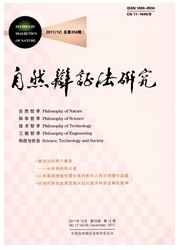

 中文摘要:
中文摘要:
因传统防卫方式的失效,美国政府开始转向和尝试以制度化的公共政策来应对日趋严重的科研不端行为。这种制度性转变的策略,呈现出早期的伦理政策化和法律化,与后期的政策法律、伦理、教育、训练、研究、技术等相结合的特点和趋势,并逐步形成科研不端行为的综合防治策略与机制。其具体表现为:制定和实施完备的政策法规体系;设立和运作良性的层级监管机制;规定统一的举报和查处程序;提供强有力的技术支撑;为保证科研诚信、防治科研不端行为、营造培育负责任研究行为的良好环境,建立和实施系统有效的教育、训练和研究体系。这种系统和制度化的科研不端行为综合防治策略,无论是对发达国家还是发展中国家,都有着极为重要的启示与借鉴意义。
 英文摘要:
英文摘要:
As the traditional defenses against misconduct failed to be effective, the US government began to veer and try to reply on the more and more serious research misconduct with the institutional public policy. The strategy, changing institutionally, showed the features and trends from the early ethic transform policy and law to the later integrating with policy, law, ethic, education, training, research and technology. And step by step it formed a strategy and mechanism of the whole integrating with the functions of prevention, management, inspection, allegation, inquiry, investigation and sanction. It incorporated as follows: constituted and implemented a sound system of policies and regulations; established and operated a benign layered mechanism of inspection and management; regulated an uniform procedure of allegation, investigation and dealing with misconduct; provided with a strong technological support; built and operated a systematic and effective system consist of education, training and research institution in order to ensure scientific integrity, prevent research misconduct, build a good environment fostering responsible research. For whether the other developed or the developing countries, this strategy hasa quite important significant of revelation and use for reference.
 同期刊论文项目
同期刊论文项目
 同项目期刊论文
同项目期刊论文
 期刊信息
期刊信息
